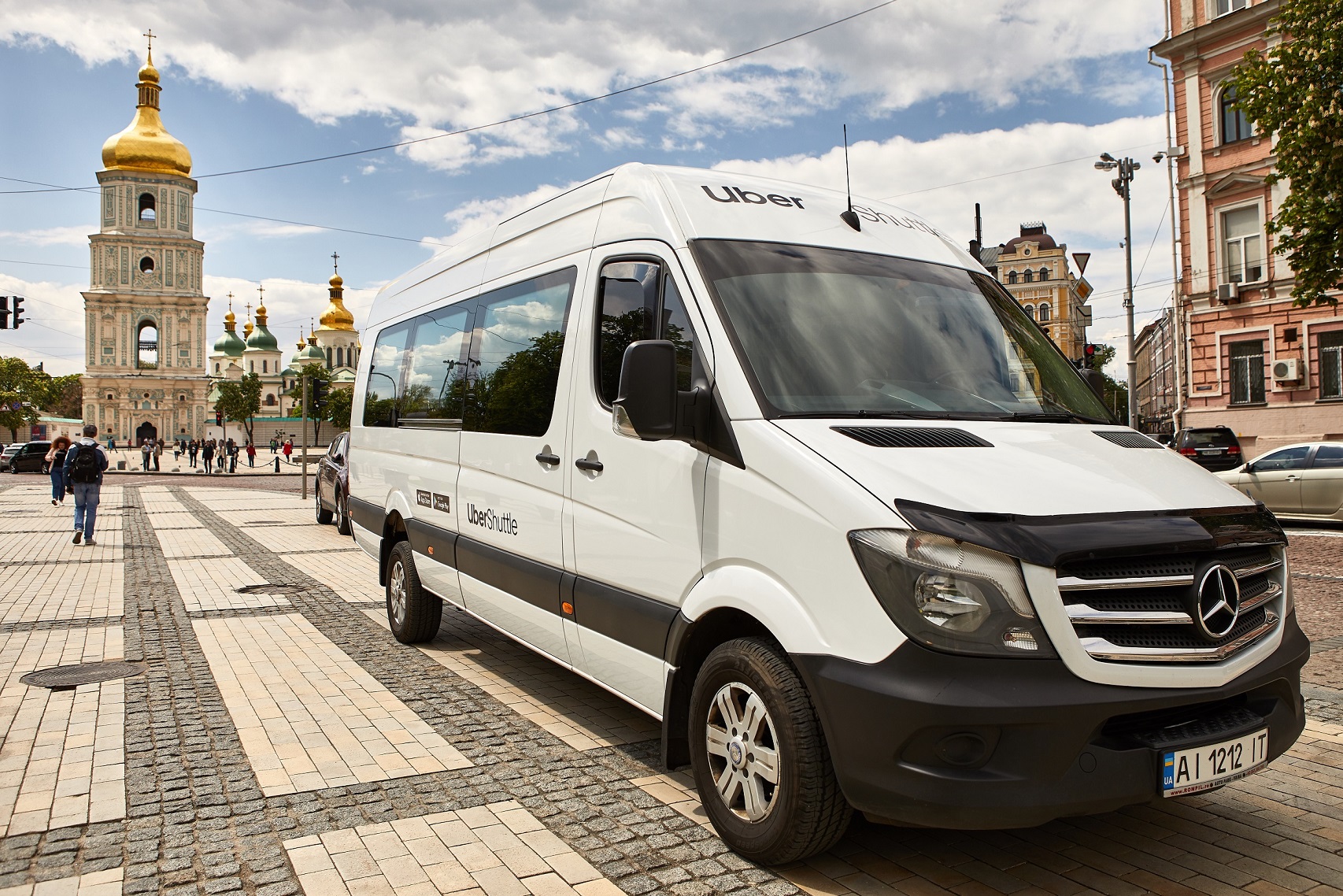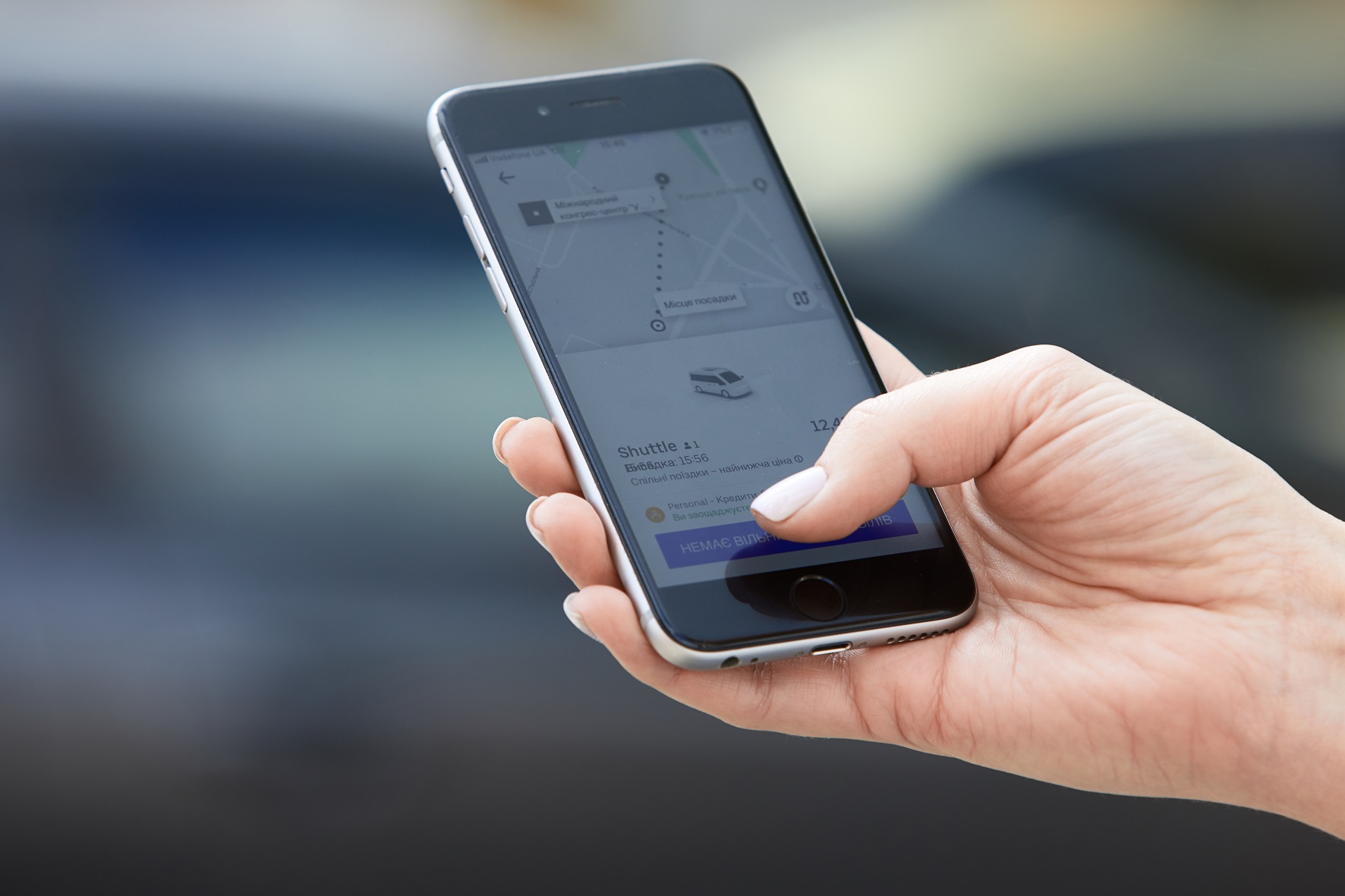They’re an iconic feature of Ukrainian public transport: “marshrutkas,” the sometimes rickety, oft maligned, and almost always overcrowded private buses zipping down city streets. They also form an important part of Kyiv’s overburdened public transport sector.
But now they have a fierce rival.
JOIN US ON TELEGRAM
Follow our coverage of the war on the @Kyivpost_official.
On May 14, global ride-sharing giant Uber launched its bus service, Uber Shuttle, in Kyiv.
The new service offers passengers the option of booking a seat in a minibus. Each bus will follow one of six regular routes across Kyiv at 15-minute intervals and can carry up to 19 people. A ride will cost Hr 15–30 (roughly $0.50 to $1), depending on the length of a route.
The Uber Shuttle option has been plugged into the existing Uber mobile application and is available from its pop-up menu from 7 a.m. to 9 p.m. The list of routes and stops is also available in the app.
When a user chooses Uber Shuttle, the app will direct him or her to the nearest stop. After each ride, the Uber user will receive an email receipt including information about the transaction, the driver, the route, and the trip time.
Riders can pay with a bank card connected to the system via the Uber app or with cash.
Uber will mostly use Mercedes-Benz Sprinter minibuses for Shuttle. It does not own the cars; rather, it will rent the minibuses from other firms. Each car will have seatbelts, something that is not available in Ukraine’s marshrutkas.
So far, however, Uber has launched only two “pilot” routes. The first begins in the city’s outlying northern Vynohradar neighborhood, passes through the city center, and ends in the Shevchenkivsky district near Peremohy Square and the Universitet metro station. The second route begins near Peremohy Square and travels to Vynohradar.
Uber will launch four other routes within 2 months, including several from the left bank of the Dnirpo River. These are currently the highest-demand routes, and they are poorly covered by existing public transport, according to a survey Uber carried out with Kyivans before the launch.
Apart from Ukraine, Uber Shuttle only operates in the capitals of Mexico and Egypt, which makes Kyiv the first city in Europe to have the service.
“We are committed to trying to reduce emissions and congestion. By giving this city this choice of transport, people here will be less likely to have a private car. Cities will be better places,” said Jamie Heywood, Uber’s regional manager in the U.K., Northern and Eastern Europe, at a press conference in Kyiv on May 14.
“This will be a great addition for riders in Kyiv to chose how they want to get from A to B,” Heywood added.
Uber is headquartered in San Francisco, California. It develops, markets and operates a mobile app to order taxi rides and another app for food deliveries, Uber Eats. Both function in some cities of Ukraine.
Overall, Uber operates in seven Ukrainian cities. And the company’s executives said that Uber Shuttle may roll out in other Ukrainian cities if the service finds demand in Kyiv.
Kyiv Mayor Vitali Klitschko appeared overjoyed at the press conference. He said he believes that Uber Shuttle will appeal to those who find taxis expensive but are unsatisfied with other means of transport in Ukraine: trams, buses or marshrutkas, which cost Hr 8, or $0.30, a ride.
“Shuttle will create an opportunity to fill this niche,” Klitschko said. “I have a mission to make the people of the capital’s lives comfortable and modern. I am doing everything to bring new technologies to Kyiv.”
The Kyiv mayor promised to improve bicycle routes in Kyiv to lure Uber’s electric bike-share service, Jump, to the city.
As of 2019, Uber is estimated to have 110 million users worldwide, a 69 percent market share in the United States for passenger transport and a 25 percent market share for food delivery.
“Ukraine is a vibrant economy with a rich tech sector,” Uber’s Heywood said. “It has an innovative population who is willing to adopt new technologies. Hence, Kyiv is now one of the most important cities in Europe for us.”
The Kyiv Post’s technology coverage is sponsored by Ciklum and NIX Solutions. The content is independent of the donors.
You can also highlight the text and press Ctrl + Enter







